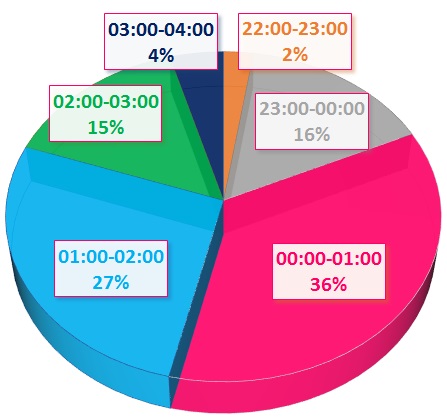Source: My UM
Have you noticed that many young people nowadays often have dark circles under their eyes? No, it isn’t the latest make-up trend. It is a distinguishing mark of the night owls. The editorial team of My UM recently surveyed 205 undergraduate students at UM. The survey results show that over 80 per cent of the students go to bed between 12:00am and 4:00am. What are the effects of going to bed late every night, and how would they affect our mental and physical health? Why do the students stay up so late?
Jiang Mingling from the Department of Communication usually goes to bed between 11:00pm and 12:00am. She considers her sleep schedule regular and hopes to maintain it. ‘But it is harder to maintain a regular sleep-wake rhythm when there are lots of homework and exams,’ says Sam. ‘I tend to go to bed late during this time.’
Lin Baining from the Department of Government and Public Administration usually goes to bed around 1:00am because of his part-time jobs. ‘I know that an irregular sleep-wake rhythm is harmful and have been thinking about changing my sleep habits,’ he says. ‘However, I haven’t been able to do it because of my heavy workload at school and part-time jobs.’
According to our survey, besides studying, many students go to bed late because they have the habit of checking Facebook or WeChat before going to bed, and as a consequence they also wake up late. Interestingly, the top reason many students get up late is because they ‘don’t feel like getting out of bed’ (81%), followed by ‘I go to bed late’ (71%), and ‘weather’ (22%).
Liu Weiwei, a senior instructor from the Faculty of Health Sciences, says that she also often stayed up late when she was in college. ‘From a scientific perspective, studying for an exam at an earlier hour and going to bed early can help improve memory retention,’ she says. Liu also stresses that young people need seven to nine hours of sleep per day, so that the body can repair itself. According to Liu, chronic sleep deprivation will affect a person’s health and create many side effects, such as slow response and memory loss. ‘If you find it difficult to fall asleep, you can listen to some soft music for about 15 minutes and stay away from electronic devices, such as cell phones and tablets,’ she says. ‘You can also get up and do something relaxing. Don’t stress if you can’t fall asleep.’





